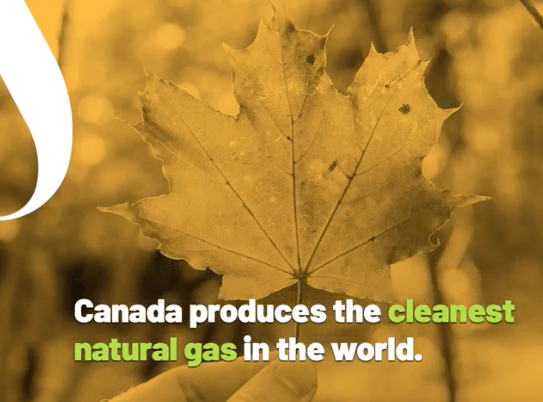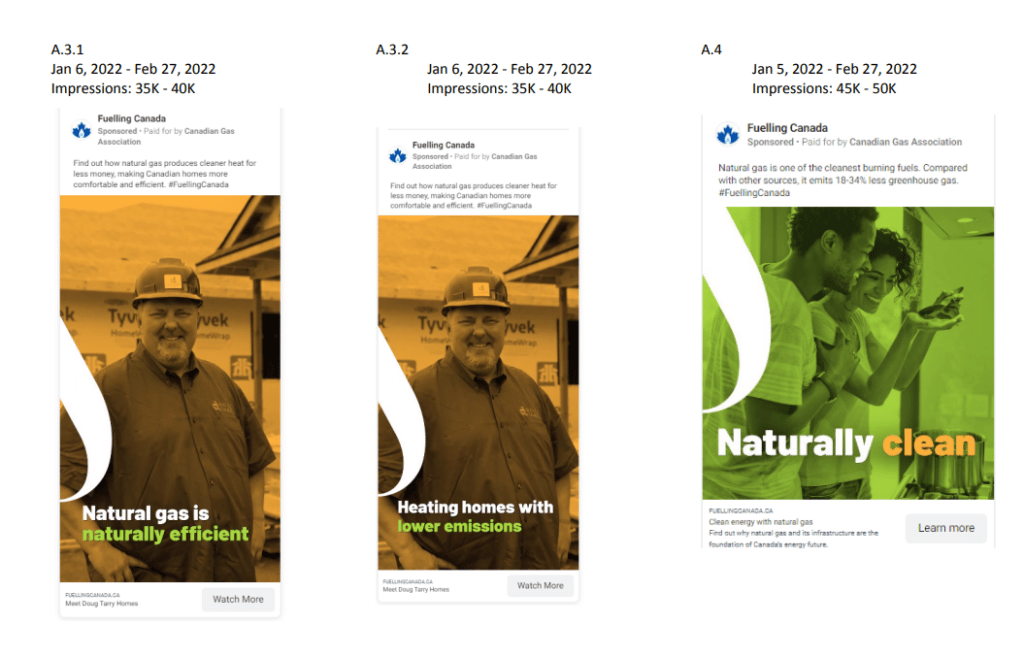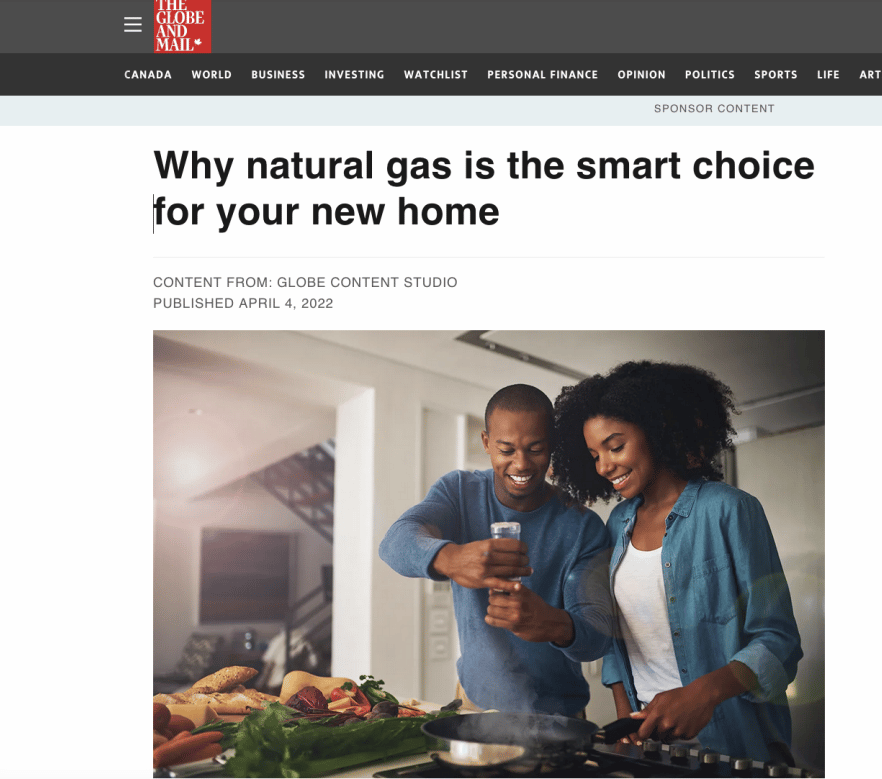Dr. Melissa Lem was shocked when she saw an advertisement from a major Canadian fossil fuel lobby group showing young parents and their two children happily cooking a meal over a brand new gas stove.
The Vancouver-based physician said that ad is “terrible and misleading” because dozens of scientific studies suggest that children who grow up breathing the fumes from gas stoves have a heightened risk of asthma — a potentially 42 percent increased risk, according to one meta-analysis.
“What would be more accurate is showing a kid with an inhaler or coughing in front of a gas stove,” Lem told DeSmog.
Lem is now one of the applicants in a recent false advertising complaint against the Canadian Gas Association, which has been running ads in the Globe & Mail and on Facebook describing natural gas as “clean-burning” and a “smart choice” for people’s homes. (Read more about the campaign in this DeSmog story).

Lem and other health workers behind the complaint are asking Competition Bureau Canada to make a ruling forcing the Canadian Gas Association to “issue a public retraction” for allegedly false claims in its ad campaign and a pay a $10 million fine, which would then fund efforts to educate the public about the health impacts of fossil fuel use and climate change.
“We have received no information from the Competition Bureau, so are not in a position to comment at this time,” a spokesperson for the Canadian Gas Association wrote in an email to DeSmog.
Lem is president-elect of the Canadian Association of Physicians for the Environment, an advocacy and research organization which helped organize doctors, nurses and public health advocates to make the advertising complaint.
She says there is precedent for regulatory bodies to crack down on false claims from the oil and gas industry, pointing to a Dutch advertising watchdog that in 2017 censured Shell and Exxon for running an ad saying that natural gas was “the cleanest of all fossil fuels.”
The companies changed an online version of the ad to read “the least polluting fossil fuel.”
These types of phrases from fossil fuel companies mirror the tobacco industry’s earlier use of the word “light” to describe its products, Lem said, which came as cigarette makers began to face scrutiny about cancer and other health risks linked to smoking.
“But all cigarettes are bad for your health,” she said. “And all fossil fuels are bad.”
There is plenty of scientific literature on the health risks of gas stoves in people’s homes, according to the false advertising complaint. It references the meta-analysis stating there is “quantitative evidence that, in children, gas cooking increases the risk of asthma.”
There is no mention of this in the Fuelling Canada advertising campaign, which claims that “natural gas produces fewer emissions and air pollutants than any other fuel” and is a “sustainable energy choice for the future.”
The campaign was created by the Canadian Gas Association whose members include gas companies like Enbridge and FortisBC, as well as TC Energy, builder of the Coastal GasLink pipeline. Enbridge and FortisBC are reportedly fighting against municipal efforts to phase out natural gas in homes and replace it with electric ranges.
Lem’s complaint also takes aim at the Canadian Gas Association’s claim that natural gas is “low-emission energy,” citing a study from a Toronto research group called The Atmospheric Fund which explained that due to methane leakage “there is little difference between the climate impacts of natural gas and coal in the short term.”

The complaint contests the claim that gas is particularly “affordable” to Canadians, referencing a 2022 Natural Resources Canada report which found low-carbon heat pumps are modestly cheaper for people to have in their homes than natural gas furnaces.
A family seeing ads from Fuelling Canada could be convinced “to install a gas-powered energy system because they believe it to be ‘clean’ and ‘affordable’ but be stuck living with a harmful polluter and paying volatile, rising gas prices for the 25-year life of the system. Low-income households will be the worst impacted,” according to a press release about the complaint.
As a physician Lem is deeply aware of the health risks of natural gas.
“The images of a happy family and children over a gas stove and using the word ‘clean,’ that in particular is very inaccurate,” she said.
Subscribe to our newsletter
Stay up to date with DeSmog news and alerts







